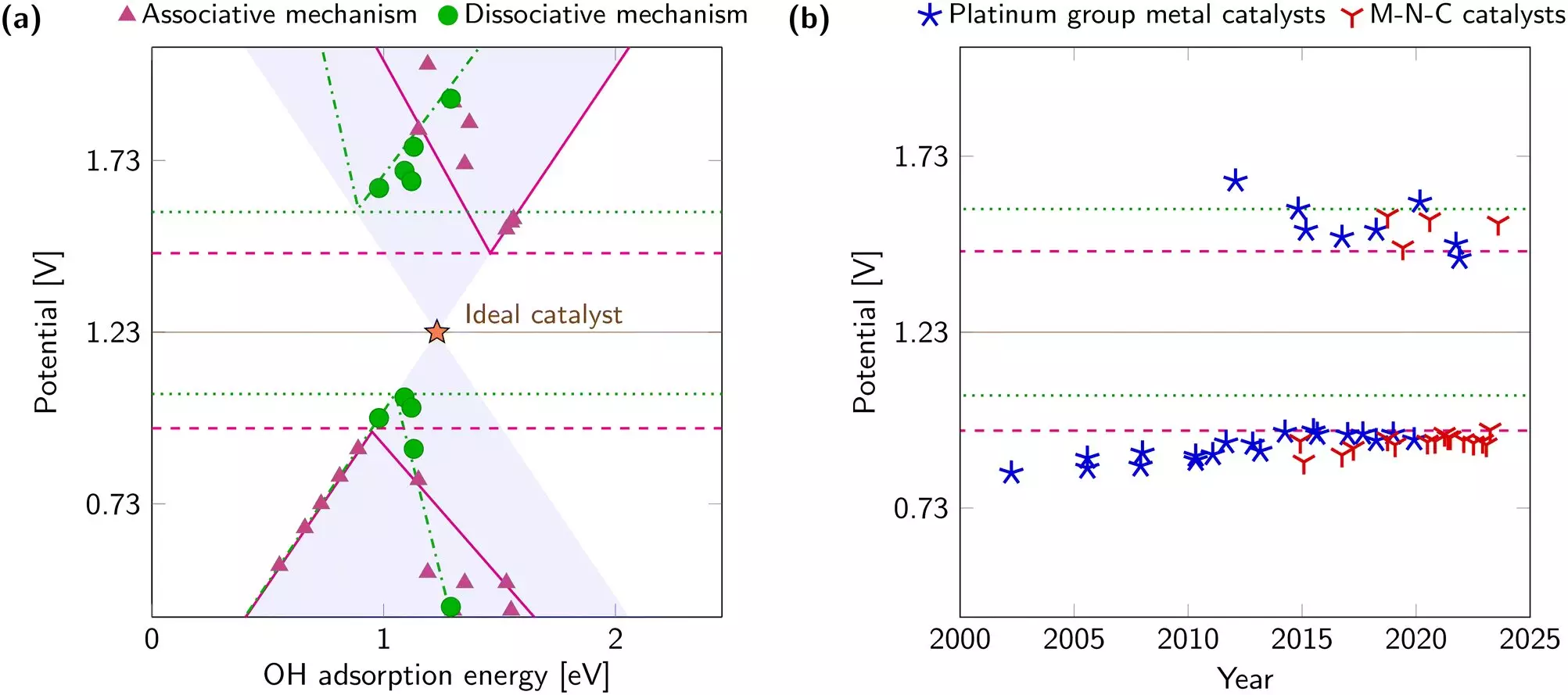Meeting the world’s growing energy needs in a sustainable way has become a pressing issue. Oxygen electrocatalysis plays a vital role in various energy conversion and storage technologies, including water splitting, fuel cells, and metal-air batteries. However, the high activation energies involved in these reactions have long been a challenge in finding efficient catalysts to facilitate them.
A team of researchers from the Universities of Tartu and Copenhagen has proposed a groundbreaking solution to this longstanding problem. In a recent article published in ACS Catalysis Science and Technology, the team introduces the concept of geometry-adaptive electrocatalysis. This innovative approach involves catalysts that dynamically adjust their geometry during a reaction, effectively bypassing the theoretical limitations that have hindered progress in oxygen electrocatalysis.
According to Ritums Cepitis, the principal author of the study, this new concept has the potential to revolutionize the field of oxygen electrocatalysis. The research team believes that by implementing this approach, the efficiency of energy conversion and storage technologies could potentially be doubled. Dr. V. Ivaništšev and Prof. J. Rossmeisl, who developed the idea during a fellowship at the University of Copenhagen, are optimistic about the practical implications of their research.
While the theoretical work behind geometry-adaptive electrocatalysis is promising, the real test lies in the laboratory experiments. Associate Professor Nadežda Kongi, the leader of the research group at the University of Tartu, acknowledges the need for creativity and innovation in translating this concept into practical applications. The team is excited about the advancements they have already seen and is prepared to take this approach to the next level.
The proposed concept of geometry-adaptive electrocatalysis offers a new paradigm for catalyst design in oxygen electrocatalysis. By overcoming longstanding limitations and theoretical constraints, this innovative approach has the potential to drive significant advancements in energy conversion and storage technologies. With a collaborative effort between researchers from different institutions, the future of oxygen electrocatalysis looks promising and exciting.


Leave a Reply